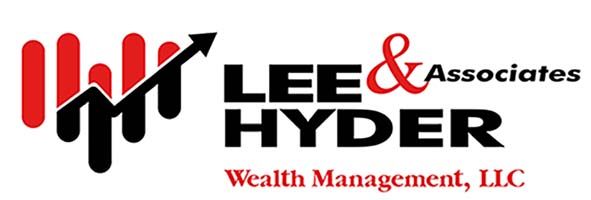What is the role of 401(k) advisors?
When people search for retirement planning and financial advisors, they might not think about their 401(k) even though it’s a major retirement asset.
But the times are changing, and working with a wealth management advisor earlier in your career to help make strategic investment decisions for your 401(k) can provide long term investment benefits.
If you’re new to the idea of fiduciary financial advisors helping you to manage your employee-sponsored 401(k) retirement plan, here is some information about how they can help:
Understanding your 401(k) …or 403(b), 457, etc
Let’s be honest: many people are great at their job, but don’t know (or want to know) how their defined contribution plan works — whether that’s a 401(k), 403(b), 457, or other. Employers provide information, of course, but who has the time to read through it all and the experience to make it understandable?
Enter wealth advisors.
Your employer might have an investment advisor available to talk to through HR at no additional expense or fee to you. Check there and make sure the financial advisor you talk to will do a few things:
- Retirement plan consulting based on your family’s entire financial picture
- Offer education about your 401(k)’s features
- Consider alternate financial vehicles like additional life insurance
- Understand and work with Self-Directed Brokerage Accounts (SDBAs, more on that later) in 401(k) plans
If not, you might want to find your own family advisor.
They can also help you understand both the pro’s and con’s of your defined contribution plan. There’s no such thing as free money. Since you fund the account with pre-tax dollars, you make the most of your money now, but there will be tax due later. And the taxes can be huge after you retire if you don’t address them while you’re still working.
Your 401(k) also may give you some investment options that you may not be aware of. Often employees in a company who are the same age with the same projected future retirement year are offered the same investment portfolio without any customization (called a target date fund). Same mutual fund selections, same security selections… Target date funds have nothing specifically designed for you, your investment goals, risk management concerns, and objectives. They assume that everyone retiring in the same year should have the same 401k portfolio without any customization. This target date fund might not be the best investment method for your situation — but how would you know?
Different investment management choices in your 401(k)
But there’s good news!
Once you’ve talked with a financial advisor and made sense of your 401(k), there might be a few more options than you were aware of. More employers are offering “self-directed brokerage accounts” (SDBAs) as part of their employee benefits.
What does that mean?
That means you have many more investment options and choices that you can make within your 401(k) to customize the investment strategy in your portfolio.
The Self-Directed Brokerage Accounts create more investment opportunities that you didn’t have in your traditional 401(k) plan. If you were ever frustrated with the few investment options offered in your 401(k) plan, the SDBA opens the door to endless possibilities. The details depend on the employer, but working with financial advisors with experience as 401(k) advisors can improve your strategy for success.
Due diligence in thinking outside the box
Help with SDBAs is just the tip of the iceberg. There’s other insight a financial advisor can give you that you’ve maybe never considered.
Like, what to do with your old 401(k)?
You’re legally able to rollover your old defined contribution plan (i.e. 401(k)) into a new employer’s 401(k) – but I wouldn’t recommend that – or into your Individual Retirement Account (IRA). So what’s the best solution for you?
It’s often easy to roll one employer plan into another, but then you’re back, stuck, with limited investment choices. Maybe it’s better to put the money in your own IRA portfolio.
Here’s another great 401(k) options you may be unaware of–
When you hit 59 1/2 you might also be able to do something called an “in-service transfer,” which lets you rollover your current employer’s 401(k) funds tax free to an IRA. Why would you want to do that, you may be saying?
- You immediately increase your investment options
- You can design a custom plan specifically designed for you
- You can start to do Roth conversions
You’ll want to consider all your choices with a financial advisor — and they’ll make sure that you’ve considered every angle to help you get the most income in retirement.
Resources on working with fiduciary financial 401(k) advisors
Have more questions about what it would be like to work with a consultant for your financial plan? It’s important to do your due diligence with research, so we invite you to help yourself to our resources on 401(k)’s — available at no cost.
Be aware that not every financial advisor has the ability to assist with your 401(k)/403(b). If you already have a financial advisor, ask if their Registered Investment Advisor (RIA) is able to work with your employer’s 401(k) plan or not. Lee Hyder & Associates is a fiduciary advisor and, as one, always puts your best interest first in any financial recommendations we make.
